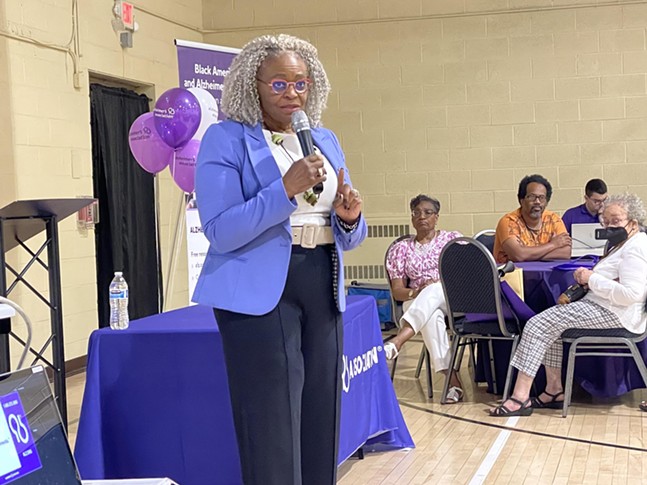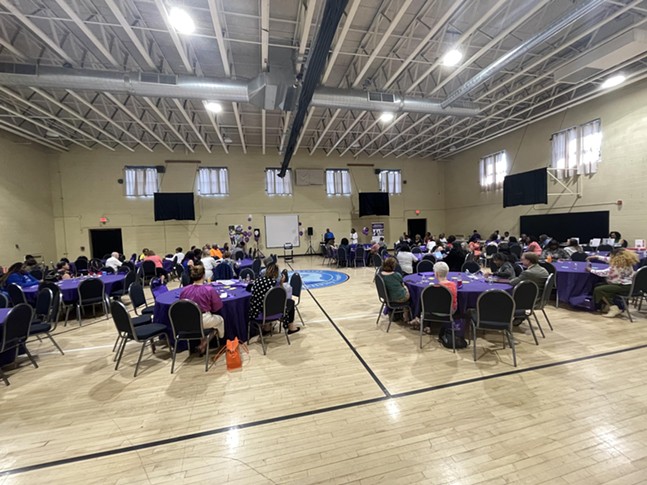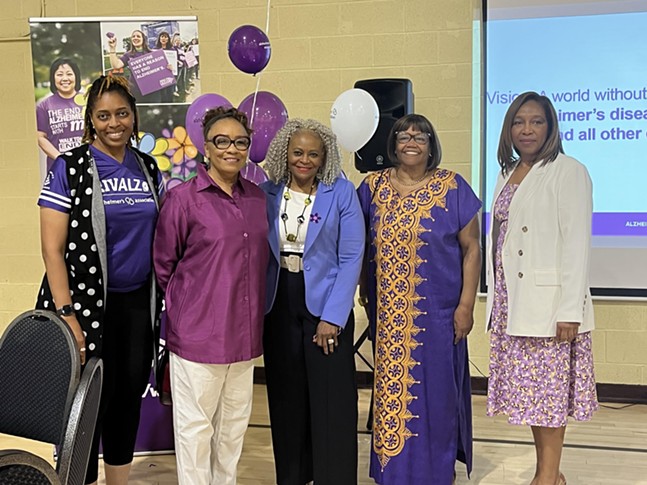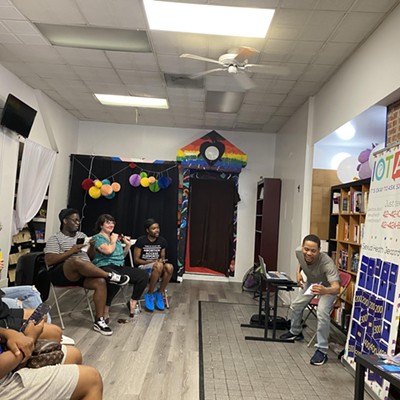
It is a heartbreaking fact that many diseases affect communities of color in alarmingly higher rates than predominately white communities. Unfortunately, Alzheimer's is one of these diseases, where black Americans are twice as likely to have Alzheimer's disease or other dementia than older white Americans. At the same time, it is unclear why genetic and environmental factors may affect communities of color differently.
What is hopeful is that researchers and scientists are hard at work seeking to understand factors that cause Alzheimer's and dementia, as well as developing new therapies and drugs to address the underlying biology and to lessen symptoms such as memory loss and confusion. In fact, just last week, advisors to the FDA endorsed a new drug designed to slow the progression of early symptomatic Alzheimer's disease.
African American Summit on Dementia
In Pittsburgh, the Greater Pennsylvania Chapter of the Alzheimer's Association is actively partnering with communities of color to bring awareness about early detection, treatment, caregiver concerns, and available resources.
On Tuesday, June 25, the community is invited to an African American Summit on Dementia. Held at Commonwealth Charter Academy (162 East Bridge Street, Homestead) from 10:00 a.m. to 1:00 p.m., the event is free; however, registration is encouraged.
Registration and details are available here: tinyurl.com/3k36dc3c or call 1-800-272-3900.
The event is described as a "Collaborative Community Conversation," addressing how Alzheimer's and other dementias impact the community and ways to address them in Pittsburgh.
The event's featured speaker is Dr. Margaret Larkins-Pettigrew, Senior Vice President and Chief Clinical DEI Officer at Allegheny Health Network/Highmark. Dr. Larkins-Pettigrew also serves as the Academic Chair of OB/GYN at Drexel University and is the Founder and President of WONDOOR, a unique and innovative global health education program in Obstetrics/Gynecology and Reproductive Biology.
Dr. Larkins-Pettigrew is a nationally recognized leader in diversity and global health. At AHN, she works with leaders to shape an inclusive workplace culture and equitable healthcare delivery and outcomes for all patients and communities served.
Collaborative Community
Diane Powell of Community and Family Builders, a partner in the summit, has assisted in planning the last three summits. After having personal experiences with Alzheimer's, she says, "The emotional impact is something you never forget."
Another proud, supportive partner of the summit is Alpha Kappa Alpha Sorority, Inc., Alpha Alpha Omega Chapter. Dr. Emma Lucas-Darby, representing Alpha Kappa Alpha, shared that their organization has supported the Walk to End Alzheimer's for many years but felt compelled to further and deepen their participation because so many members saw family members facing early-onset Alzheimer's. Dr. Lucas-Darby states, "We need to be as educated as possible to understand how to adjust and support family members and loved ones."
She continued, "We need to gain and share a better understanding of the role that exercise and diet play with Alzheimer's."
Dr. Brenda Gregg, founder and executive director of Project Destiny Inc. and Pastor at Destiny of Faith in the North Side, represents the Faith-Based Health Collaborative, another partner in the summit. The organization is a partnership between faith communities, congregations, the health care system, and the community. According to Dr. Gregg, the group has sought ways to educate the African American and Hispanic communities. "We are all in this together, and we need to help our communities understand how and when to recognize symptoms of Alzheimer's and other dementias."
Addressing Disparities in Care and Diagnosis
All three members of the collaborative organizations working to bring the African American Summit on Dementia to fruition shared significant concerns about the disparities in healthcare resources and diagnoses facing communities of color.
According to Dr. Lucas-Darby, "We have to step up as a community; we cannot allow cultural dynamics to play a role in the quality of care available and the diagnosis process. As a community, we must be aware of and work to eliminate the role that racism and discrimination play in the diagnosis and treatment of Alzheimer's and other dementias."
In 2022, the Black Progress Index assessed quality-of-life metrics that the authors say best predict an individual's life expectancy. The study, co-authored by the NAACP and Brookings Metro, found that Black Pittsburgh residents live for 71.3 years on average, compared to the national mean of 74.4 years for Black Americans. Three years less than the national average.
The report follows previous studies highlighting Pittsburgh's disproportionately negative quality of living standards for Black people. Notably, a 2019 study commissioned by Pittsburgh's Gender Equity Commission found Pittsburgh to be among the least livable U.S. cities for Black women but also poor for Black men.
According to Dr. Gregg, "As a community, we have to reduce the stigma around Alzheimer's. Traditionally, we haven't discussed these issues with doctors and families until it was too late." She continued, "For people who don't know where to go or who to trust, we are bringing the message to you."
Diane Powell agrees, "We need to better understand the cultural nuances and break through barriers to assure community members access services sooner." She is also very excited to see the summit grow: "In our third year, we are starting to get the word out. We are seeing more people engaged and asking more questions."
Diane encourages anyone from the community to attend. She promotes the "radical thought that we are forced to rectify with a new normal for both caregivers and loved ones with Alzheimer's and dementia."
To learn more about the research funded by the Alzheimer's Association, early signs of the disease, or resources available in our area, please visit https://www.alz.org/pa.
















